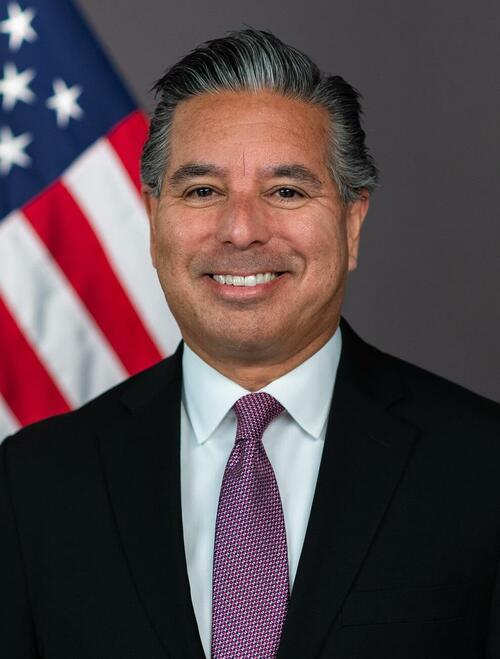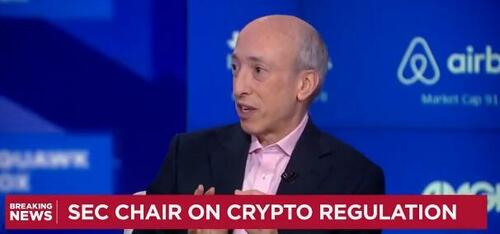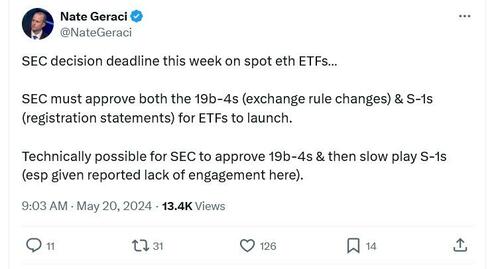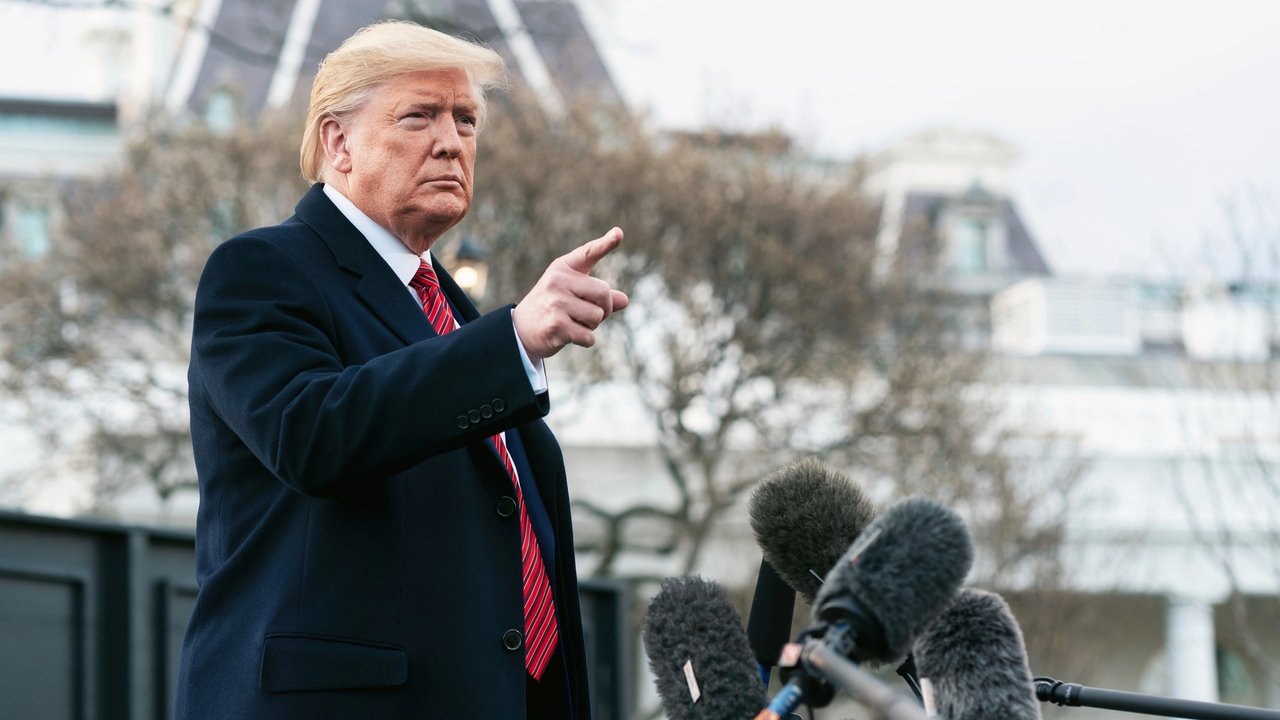
Spot Ether ETFs Will Come Down To A 5-Person Vote This Week: Gensler The Decider?
Authored by Brayden Lindrea via CoinTelegraph.com,
The fate of spot Ether exchange-traded funds could be decided this week by a single vote from Gary Gensler, the chair of the United States Securities and Exchange Commission — if history is any indication.

In January, the approval of spot Bitcoin ETFs came down to a five-commissioner panel. Two crypto-friendly commissioners, Hester Pierce and Mark Uyeda, voted to approve ETFs, while Commissioners Caroline Crenshaw and Jaime Lizárraga voted against them.
Gensler also voted to approve it, leading many to believe his vote ultimately secured approval of spot Bitcoin ETFs, which were approved with a 3-2 vote on Jan. 10, 2024.

Final SEC Commission votes for the spot Bitcoin ETF. Source: SEC
This week, the same five SEC Commissioners are set to cast their votes to either approve or deny VanEck’s spot Ether ETF on May 23. Here’s what we know about them.
Hester Peirce
Peirce earned the nickname “Crypto Mom” for a reason — she’s bullish on digital assets and wants to see more decentralization integrated into the broader financial system.
She hasn’t confirmed how she’ll vote on the spot Ether ETFs.
However, she’s made herself a part of the Ethereum community, having attended and spoken at ETHDenver in Colorado in late February.

Hester Peirce (left) speaking at ETHDenver. Source: ETHDenver
Peirce has slammed the SEC’s approach to overseeing the cryptocurrency industry in the past, calling some parts of the securities regulator’s approach as „unproductive” and „pointless.”
Caroline Crenshaw
Crenshaw is a strong critic of the cryptocurrency industry and was a strong dissenter in the spot Bitcoin ETF decision.
At the time, Crenshaw said the price of spot Bitcoin ETFs would be impacted by fraud and market manipulation in the broader industry — and by approving the Bitcoin products, the SEC would be failing to protect U.S. investors.
There’s no evidence to suggest that Crenshaw has changed her mind about spot crypto ETFs since then.

Caroline Crenshaw. Source: SEC
“There is little to no systemic oversight of these markets, nor other sufficient mechanisms in place for the detection and deterrence of fraud and manipulation,” Crenshaw said in dissent for the spot Bitcoin ETFs.
“[Spot trading] is fragmented and scattered across different international trading venues, with many markets not subject to meaningful regulation,” she added.
Mark Uyeda
Aside from Peirce, Uyeda has been the only other Commissioner that has called out the SEC for its “regulation by enforcement” approach toward the cryptocurrency industry.
He disagreed with the SEC’s decision to deny a Coinbase petition last December, which accused the agency of behaving arbitrarily and capriciously in its refusal to tailor rules to clarify oversight of the industry.
Uyeda also voted to approve the spot Bitcoin ETFs but expressed “strong concerns” over how the SEC reached its decision.

Mark Uyeda (right) speaking at Milken Institute conference. Source: Eleanor Terrett
He claims the Commission deviated from its “significant market” test used to decide on exchange-traded products and instead approved the spot Bitcoin ETFs under “other means.”
Uyeda described the SEC’s reasoning as “flawed” but cited “independent reasons” behind his decision to vote in favor of the spot Bitcoin ETFs.
However, it isn’t clear what those “independent reasons” are, let alone whether they will apply to spot Ether ETFs too.
Jaime Lizárraga
Lizárraga voted against approving the spot Bitcoin ETFs and was the only Commissioner who didn’t issue a statement following the decision.
However, he reportedly said Bitcoin’s promise as a “viable alternative to traditional finance” and a “genuine financial inclusivity” hadn’t been reached in a speech held at Brooklyn Law School in November 2022.
At the time, he opposed the idea that SEC adopts a “regulation by enforcement” approach toward the cryptocurrency industry.

Jaime Lizárraga. Source: SEC
He also believes most cryptocurrencies are subject to U.S. securities laws, and as a result, are operating illegally.
There’s no evidence to suggest that he’s changed these views since the spot Bitcoin ETFs were approved.
Gary Gensler
While Gensler voted to approve spot Bitcoin ETFs in January, some speculate that he was compelled to do so because Grayscale had won its appeal against the regulator months earlier.
There is no telling whether he will approach the current string of Ether ETF applications in the same way.

Gary Gensler speaking with CNBC about cryptocurrency regulation. Source: CNBC
Earlier this month, Gensler confirmed the SEC’s decision was still under review in a May 7 interview with CNBC:
“That’s something in front of our commission right now. We’re a five-member Commission, and those filings will take up at the appropriate time.”
Gensler has also recently been accused of avoiding answering whether Ether is a security — even when asked by Congress.

Deadlines for the Ether ETF applications before the SEC. Source: James Seyffart
Meanwhile, there are other potential wrinkles in the works. There’s an investigation into Ether’s status as a potential security — led by SEC Division of Enforcement director Gurbir Grewal.
A few fund managers have also claimed the SEC has been less engaging on spot Ether ETFs. A lawyer for one of those applicants, Bitwise, reportedly said a few fund managers are now anticipating an SEC denial this week.
More recently, Nate Geraci, President of The ETF Store, noted it is technically possible the SEC approves the 19b-4 applications (exchange rule changes) but prevents an immediate launch by delaying the S-1 applications (registration statements).

Source: Nate Geraci
Bloomberg ETF analysts Eric Balchunas and James Seyffart predict a 25% chance that at least one spot Ether ETF is approved on May 23 — that figure has fallen from 70% since January.
Tyler Durden
Mon, 05/20/2024 – 13:00














